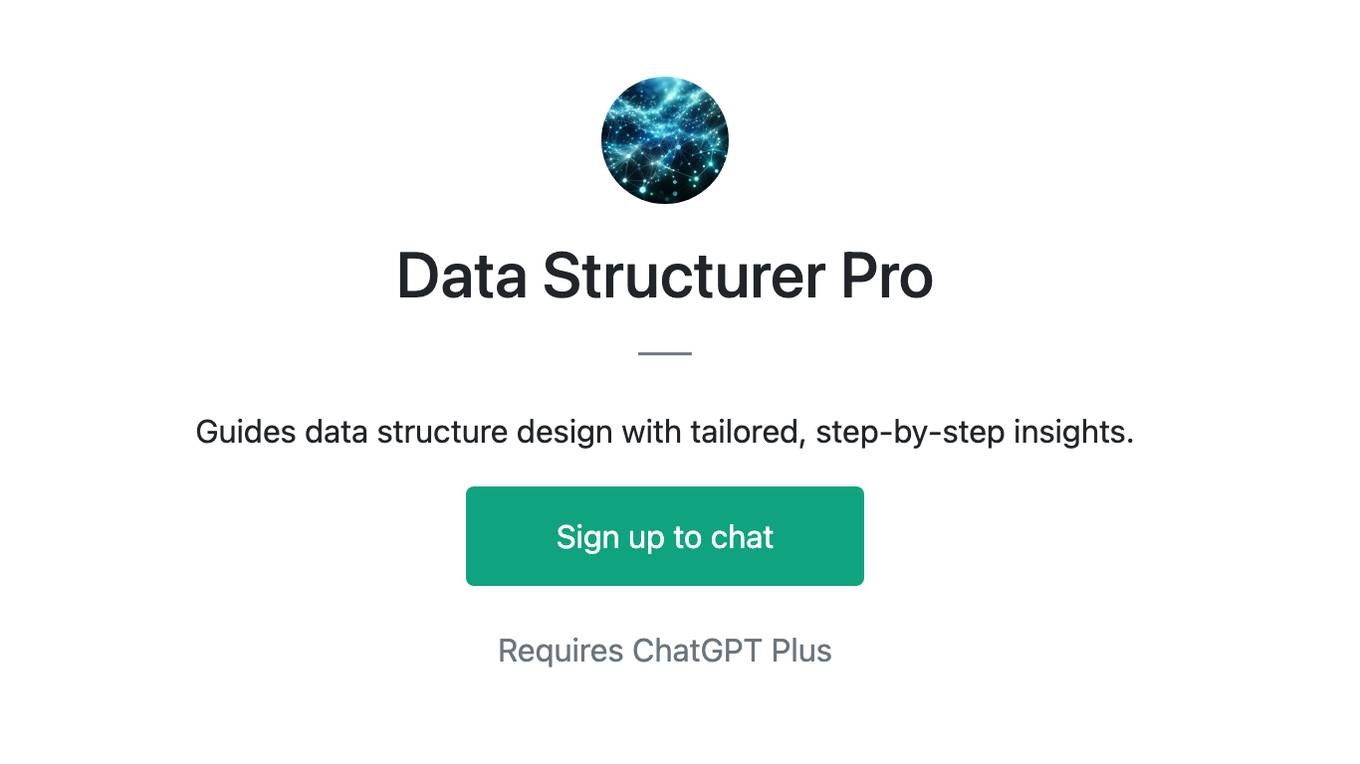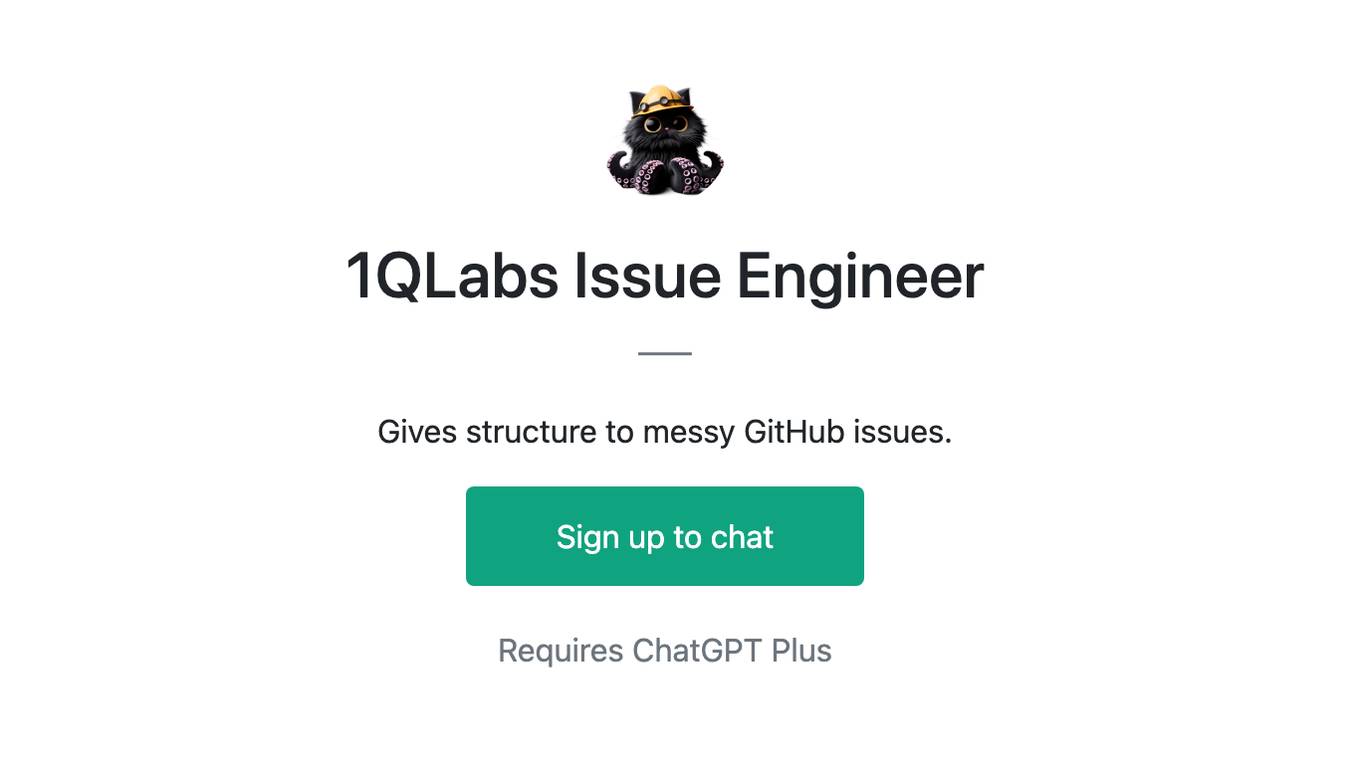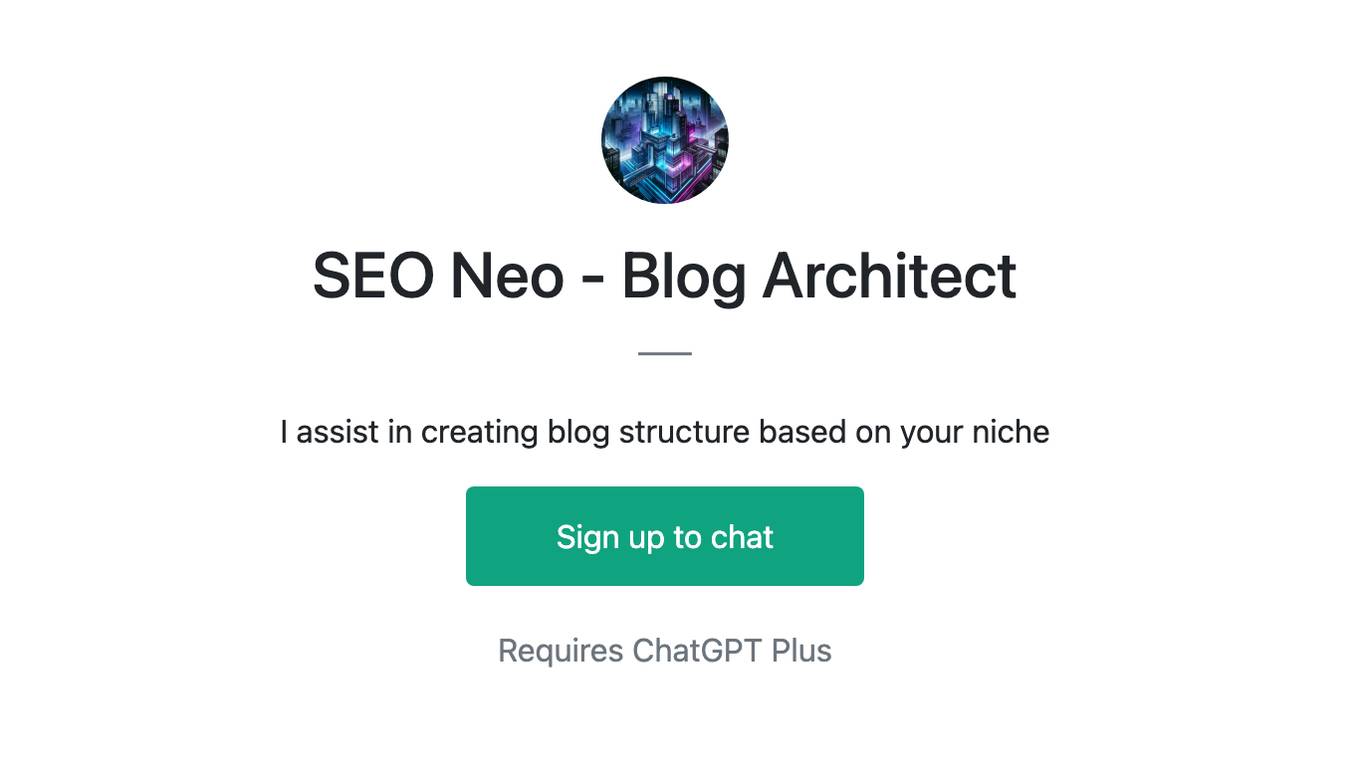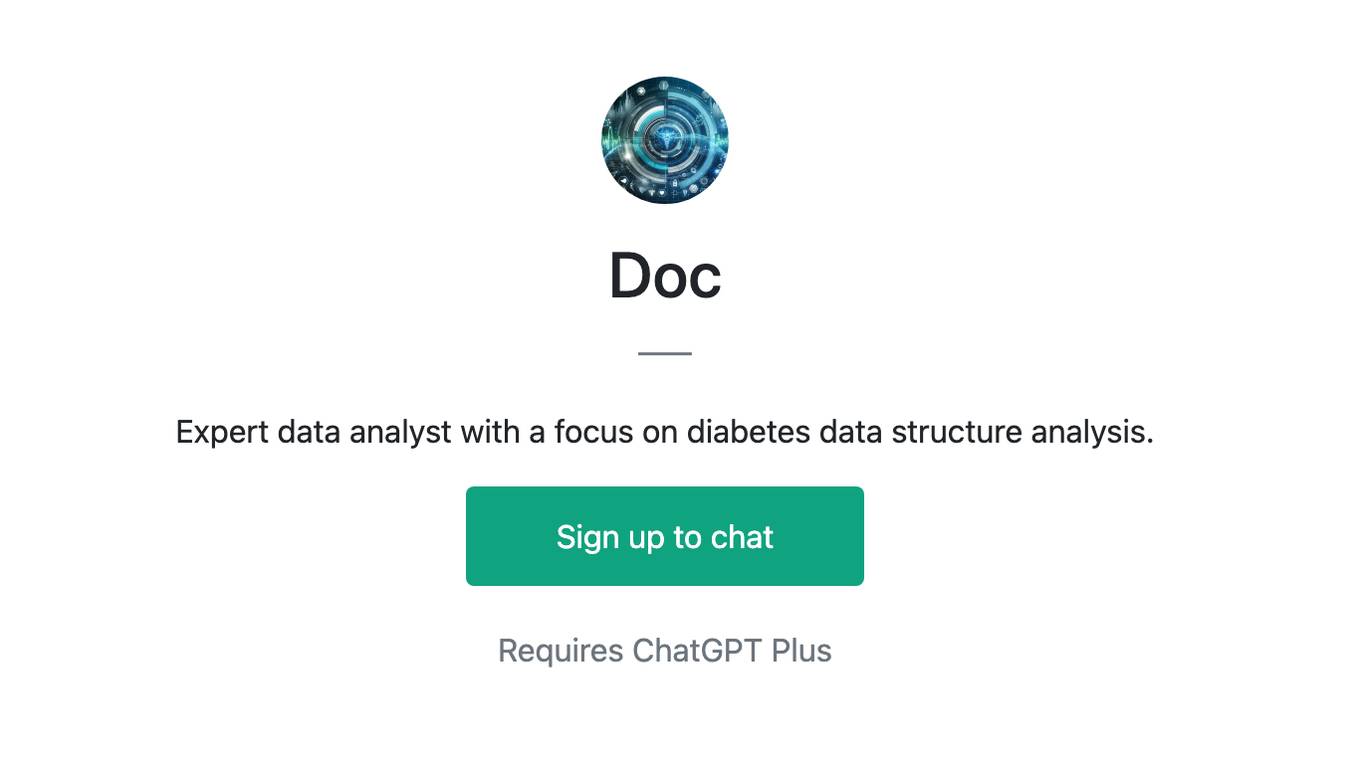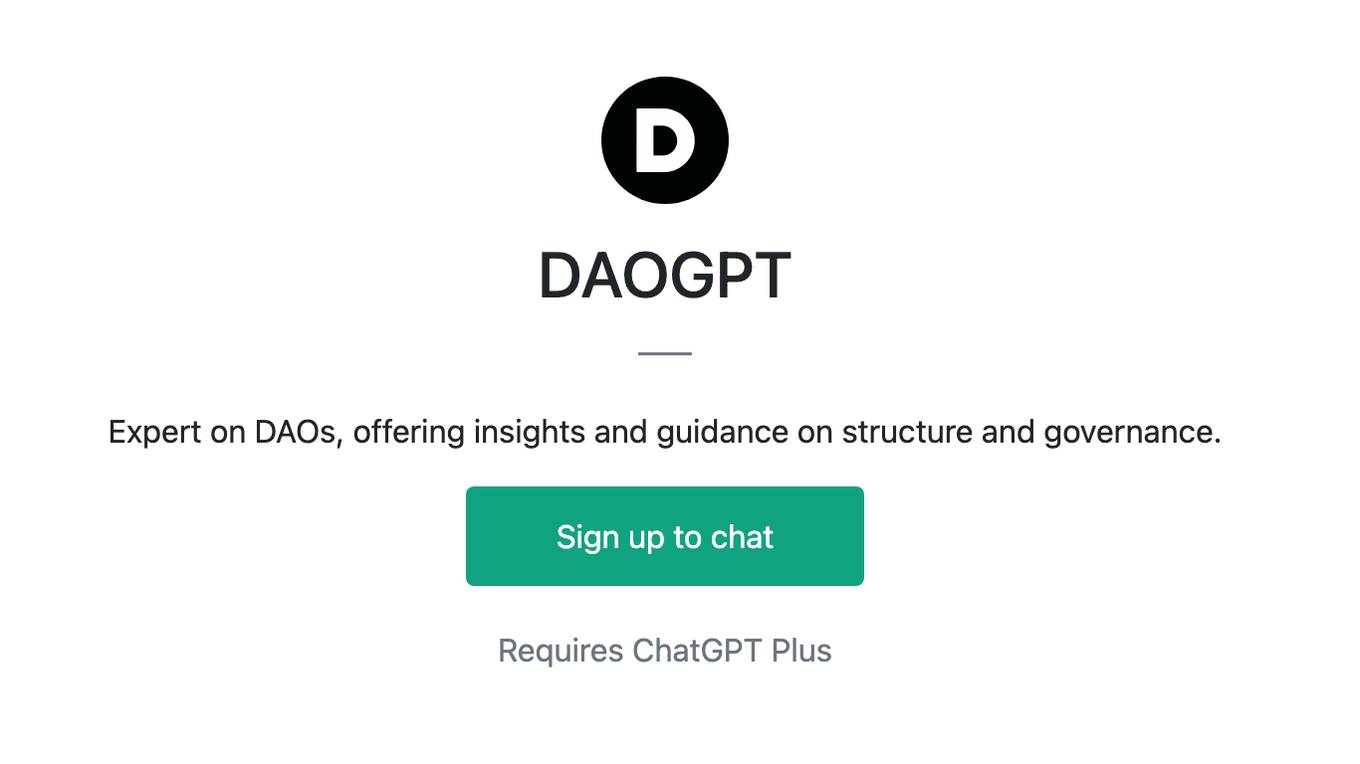Best AI tools for< Structure Arguments >
20 - AI tool Sites
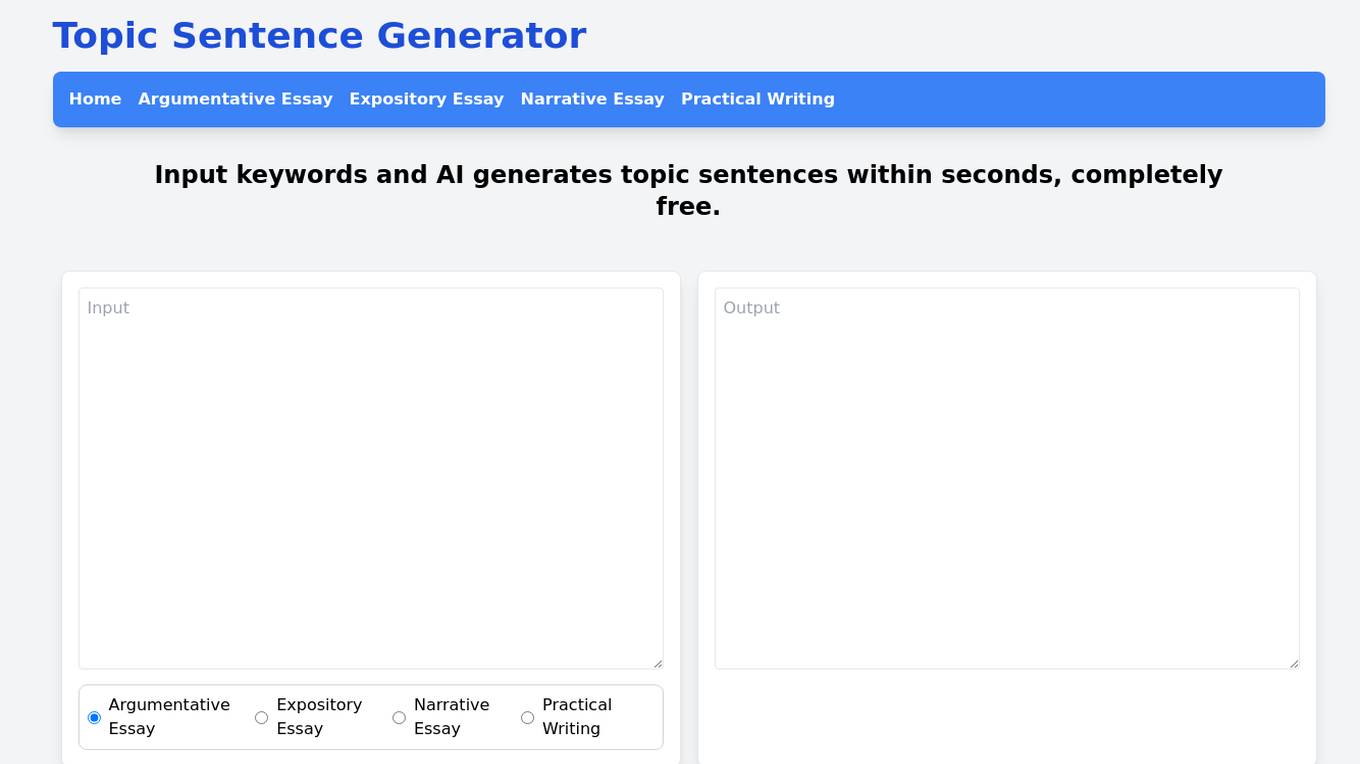
Topic Sentence Generator
The Topic Sentence Generator is an AI tool that helps users generate topic sentences for various types of essays and writing. It uses artificial intelligence to analyze input keywords and quickly generate topic sentences that capture the essence of a paragraph. The tool provides guidance on writing effective topic sentences, including different forms and tips for crafting them. Whether for argumentative, expository, narrative, or practical writing, the Topic Sentence Generator assists users in creating clear and concise topic sentences to enhance the coherence and clarity of their writing.
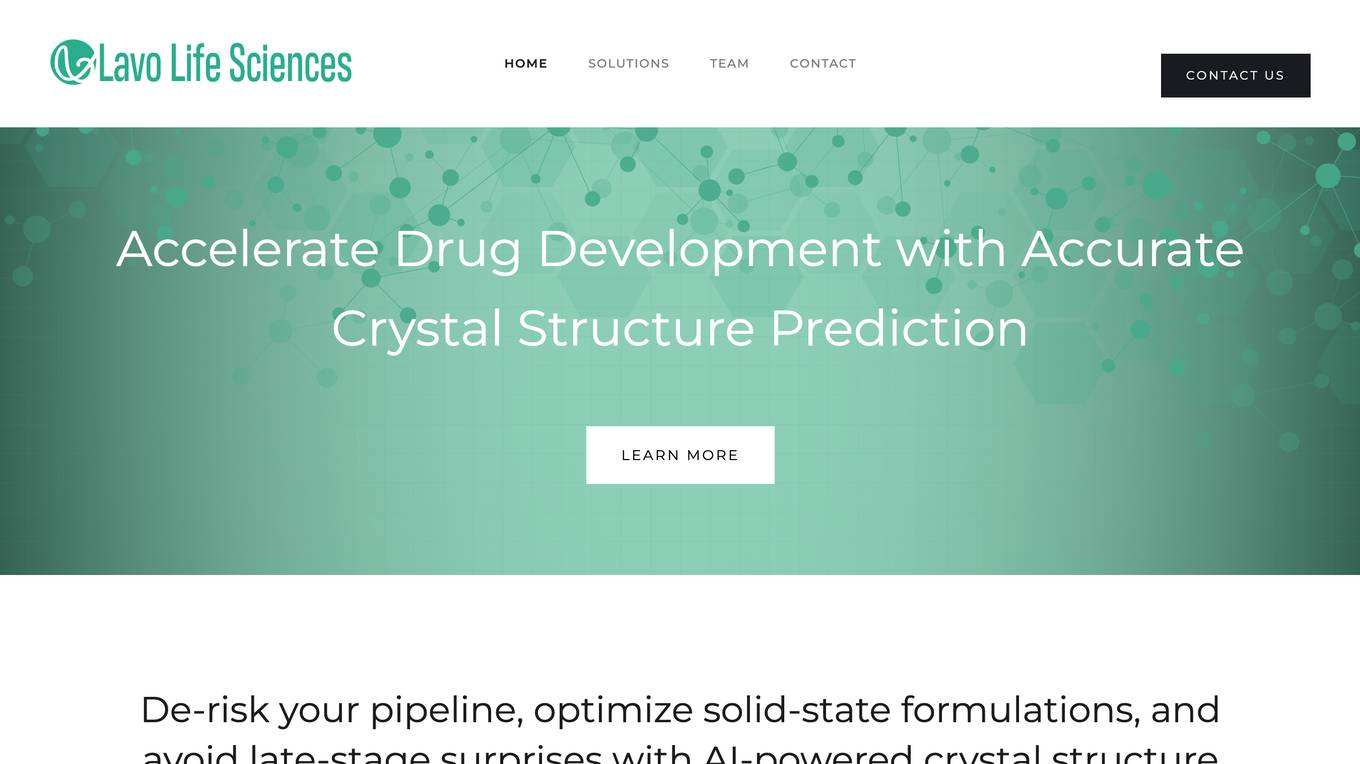
Lavo Life Sciences
Lavo Life Sciences is an AI-accelerated crystal structure prediction application that helps in drug development by providing accurate predictions for small molecule drugs. The application utilizes AI technology to optimize solid-state formulations, reduce turnaround time, mitigate risks, and discover novel polymorphs, ultimately streamlining the pharmaceutical research and development process.

Manus
Manus is a general AI agent that excels at various tasks in work and life, bridging minds and actions to deliver results. It integrates comprehensive travel information, conducts in-depth stock analysis, develops engaging educational content, generates structured comparison tables, and conducts comprehensive research across extensive networks. Manus works exclusively in the user's best interest, providing actionable insights, visualizations, and customized strategies to increase performance.
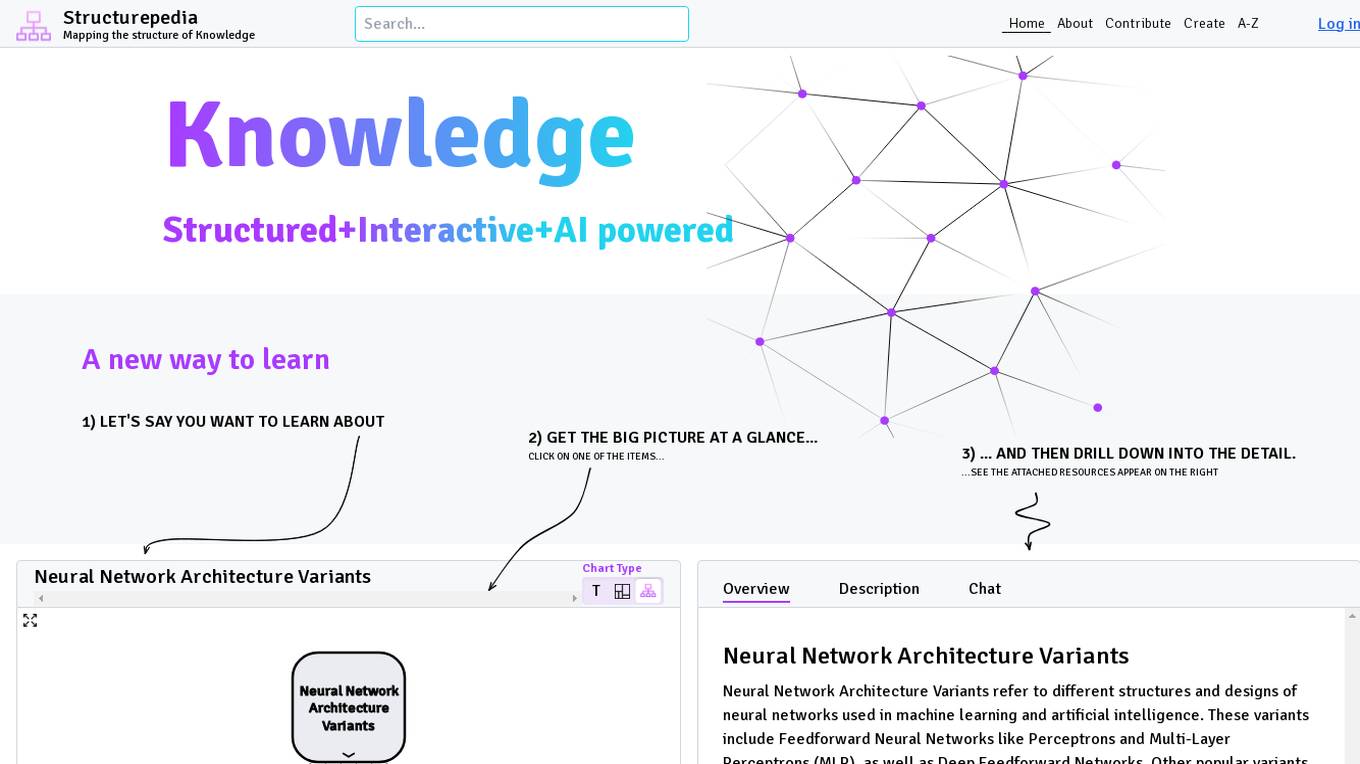
Structurepedia
Structurepedia is an AI-powered platform that maps the structure of knowledge by providing structured and interactive information on various topics, including neural network architecture variants and other important concepts in machine learning and artificial intelligence. It offers a new way to learn by allowing users to explore topics through visual diagrams and detailed resources, making it easier to understand complex information. Structurepedia aims to revolutionize the way people access and comprehend knowledge in the age of AI, acting as a modern encyclopedia and search engine tailored for the AI era.
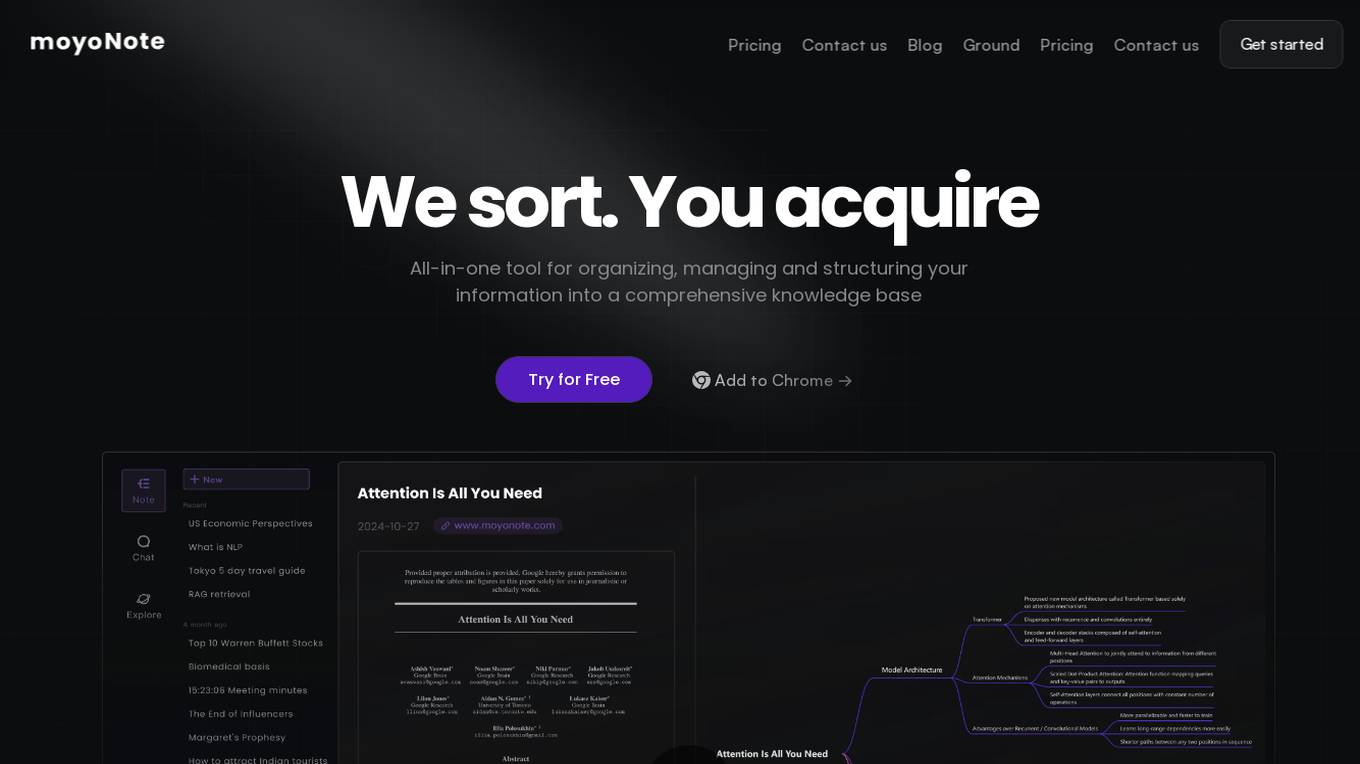
moyoNote
moyoNote is an AI-powered tool designed for organizing, managing, and structuring information into a comprehensive knowledge base. It offers features such as generating mind maps from text or files, interactive Q&A for maps, and customization options for personal expression. Users can easily share mind maps with others and control access permissions. The tool aims to simplify workflow, improve work efficiency, and enhance collaboration among users.
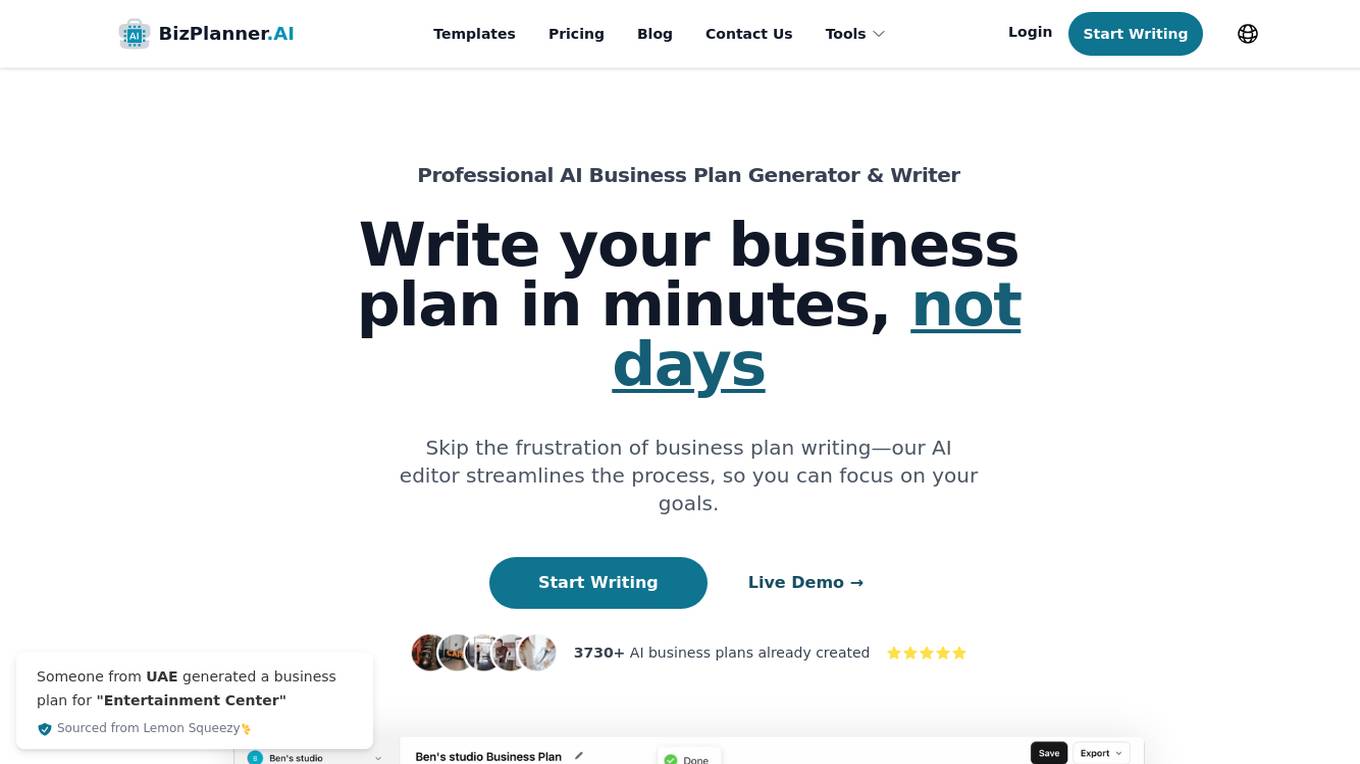
BizPlanner AI
BizPlanner AI is a professional AI Business Plan Generator & Writer that allows users to create customized, professional business plans in minutes. The AI editor streamlines the process, enabling users to focus on their business goals. With features like in-browser editing, AI section generator, and convenient export options, BizPlanner AI offers a comprehensive solution for business planning.

BugFree.ai
BugFree.ai is an AI-powered platform designed to help users practice system design and behavior interviews, similar to Leetcode. The platform offers a range of features to assist users in preparing for technical interviews, including mock interviews, real-time feedback, and personalized study plans. With BugFree.ai, users can improve their problem-solving skills and gain confidence in tackling complex interview questions.
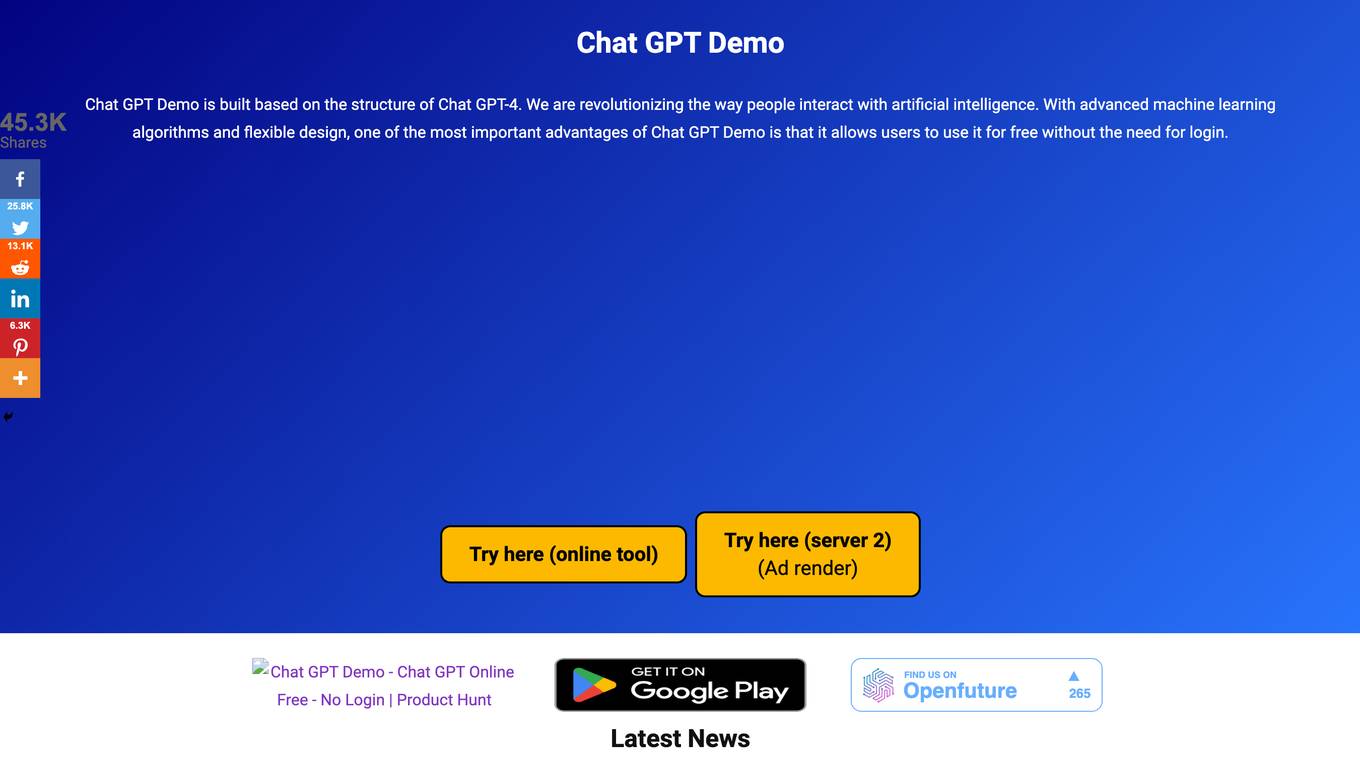
Chat GPT Demo
Chat GPT Demo is a free-to-use online tool that allows users to interact with a powerful AI language model developed by OpenAI. This advanced tool is designed to generate human-like text, engage in conversations, answer questions, and assist with a wide range of writing tasks. With its user-friendly interface and advanced capabilities, Chat GPT Demo empowers users to explore the possibilities of AI and enhance their productivity. The tool is particularly valuable for individuals seeking assistance with content creation, research, and communication.
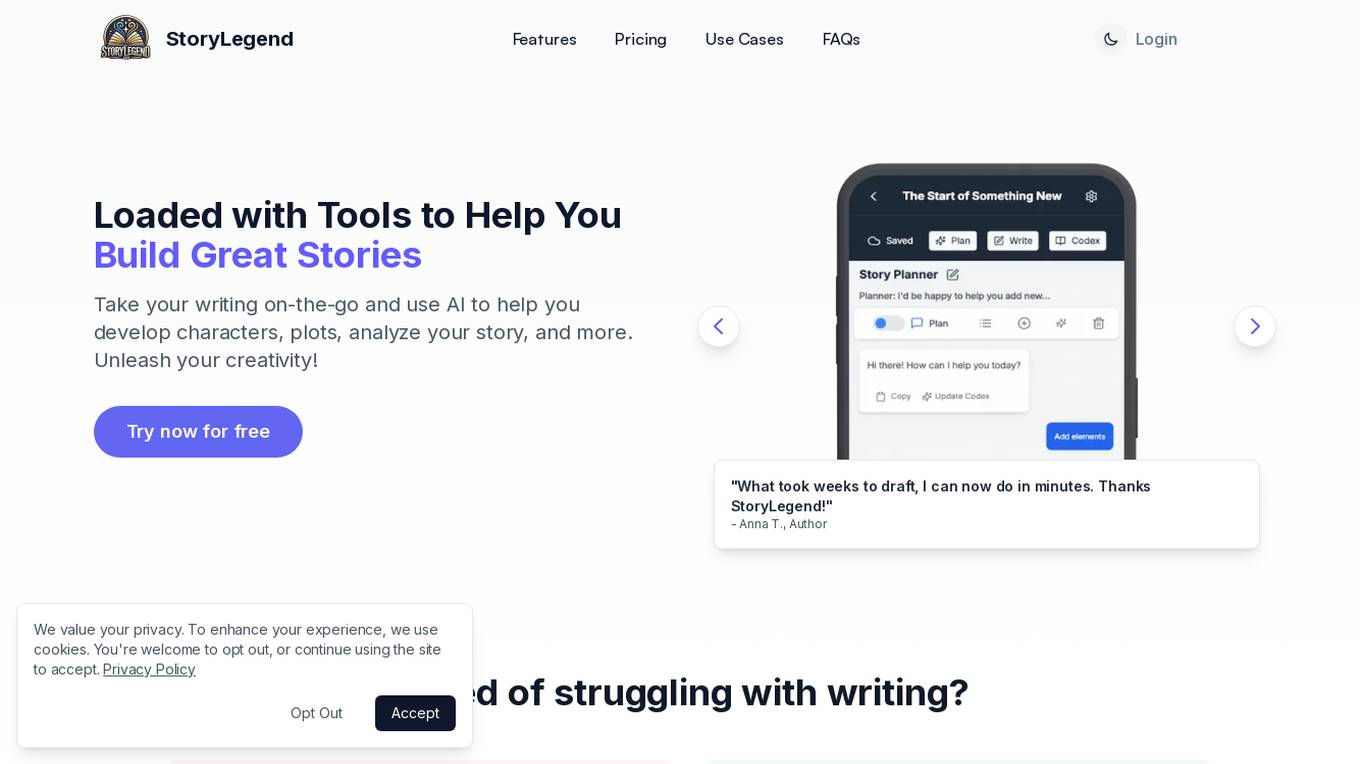
StoryLegend
StoryLegend is an AI-powered story writing dashboard that helps writers create compelling stories by providing tools for character development, plot analysis, and real-time writing assistance. The platform offers features such as AI writing assistant, story structure guide, quick draft generation, writing analysis, and character development. Writers can easily collaborate, track progress, and unleash their creativity with the help of AI technology. StoryLegend aims to streamline the writing process and enhance storytelling capabilities for authors and content creators.

Octopus.do
Octopus.do is a lightning-fast visual sitemap builder and website planner that offers a seamless experience for website architecture planning. With the help of AI technology, users can easily generate colorful visual sitemaps and low-fidelity wireframes to visualize website content and layout. The platform allows users to prepare, manage, and collaborate on website content and SEO, making website planning fast, easy, and enjoyable. Octopus.do also provides a variety of sitemap templates for different types of websites, along with features for real-time collaboration, onsite SEO improvement, and integration with Figma designs.

SelfLearner
SelfLearner is an AI-powered learning platform that provides personalized learning experiences for students of all ages. The platform uses artificial intelligence to track student progress, identify areas where they need additional support, and provide them with tailored learning materials. SelfLearner also offers a variety of interactive learning activities, such as games, simulations, and quizzes, to help students learn in a fun and engaging way.
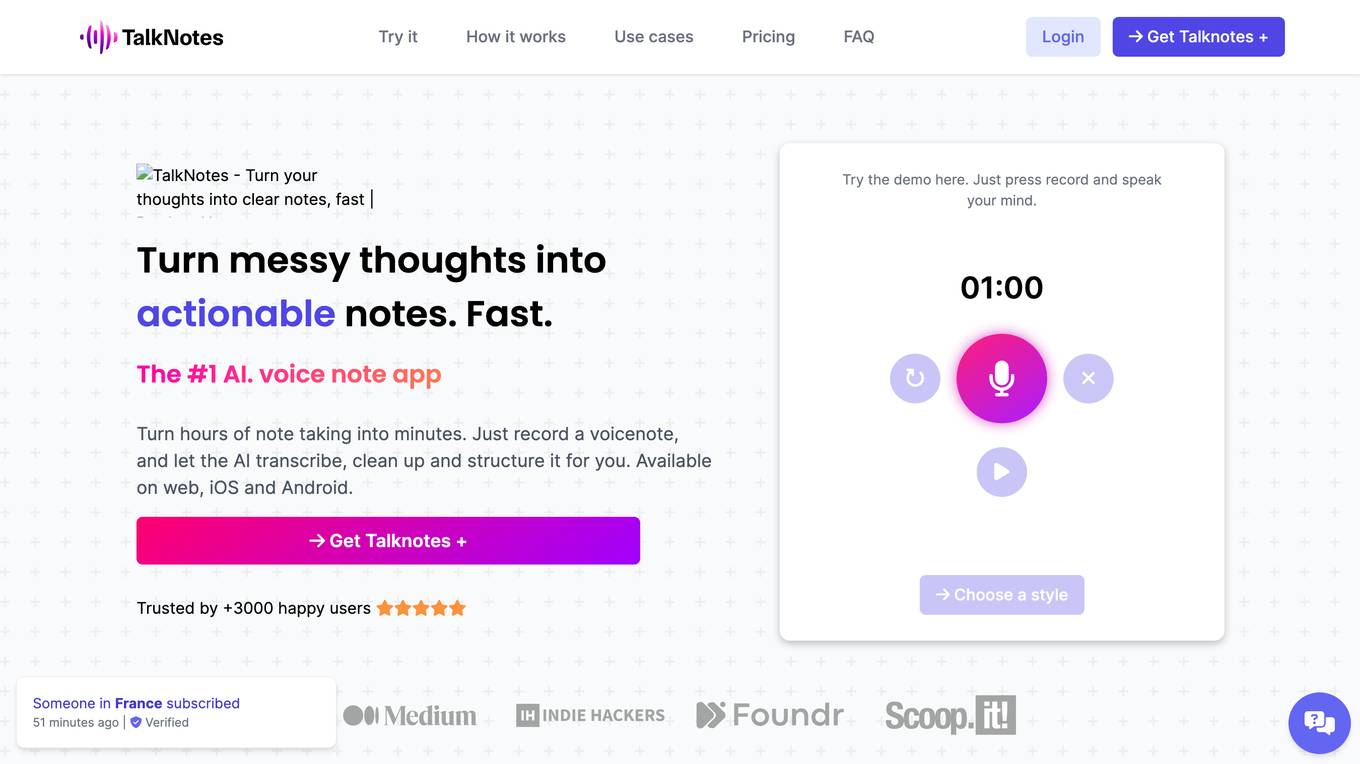
Talknotes
Talknotes is the #1 AI voice note app that transforms messy thoughts into actionable notes. Users can record voice notes and let the AI transcribe, clean up, and structure them. The app supports multiple languages and offers various styles for transcribing voice notes into different formats like blog posts, task lists, and more. With Talknotes, users can effortlessly brainstorm, create content, journal, transcribe interviews, and improve meeting efficiency. The application is trusted by over 10,000 happy users and offers both monthly and yearly pricing plans with secure payment options.

Plume AI
Plume AI is a writing assistant that helps you write better, faster, and more efficiently. It uses artificial intelligence to analyze your writing and provide suggestions for improvement. Plume AI can help you with a variety of writing tasks, including emails, social media posts, blog posts, and even creative writing.

AI Screenwriter
AI Screenwriter is an AI-powered screenwriting tool designed to assist users in writing film scripts, story outlines, and character sheets. Developed by film industry insiders, this tool leverages advanced technology to help users brainstorm, structure, and write their stories while providing valuable insights and suggestions. With features like real-time output, support for multiple languages, and seamless communication with human support agents, AI Screenwriter aims to supercharge creativity and streamline the screenwriting process for both experienced and novice writers.
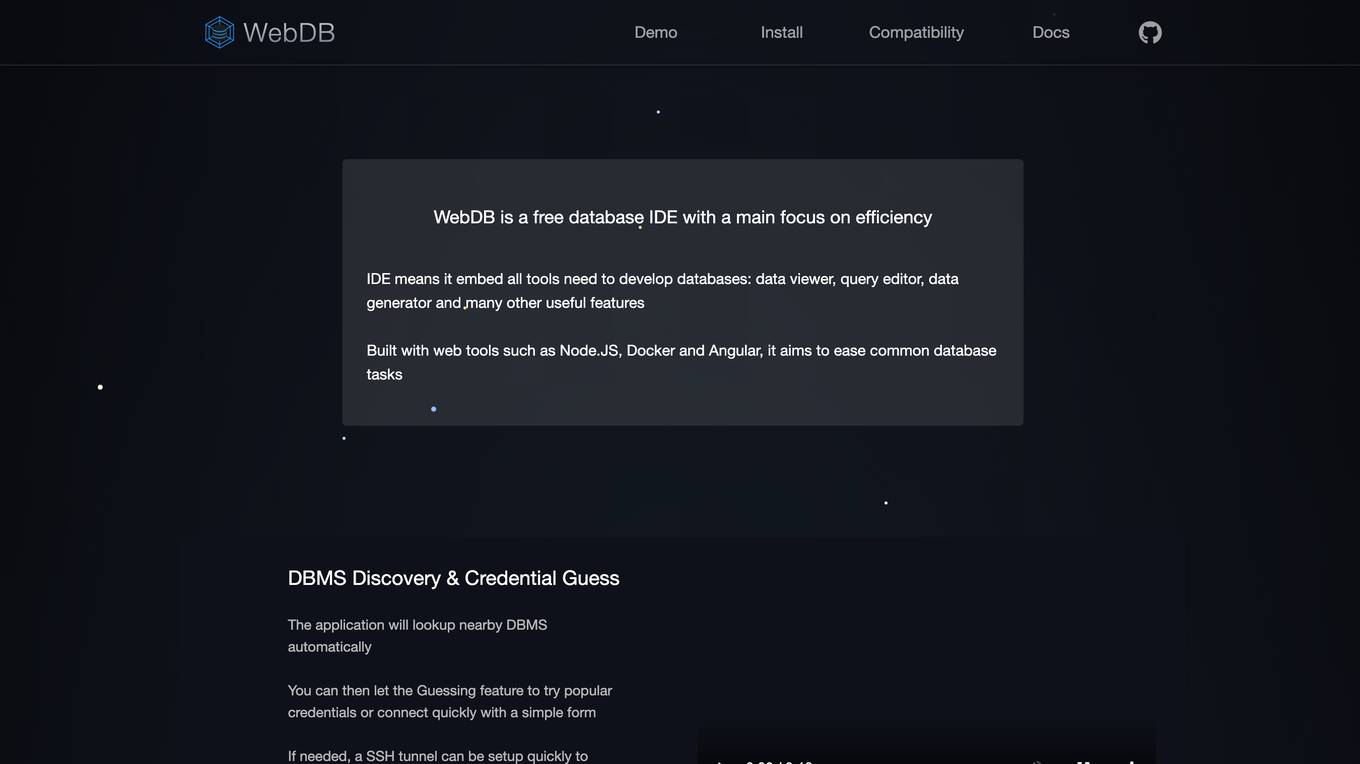
WebDB
WebDB is an open-source and efficient Database IDE that focuses on providing a secure and user-friendly platform for database management. It offers features such as automatic DBMS discovery, credential guessing, time machine for database version control, powerful queries editor with autocomplete and documentation, AI assistant integration, NoSQL structure management, intelligent data generation, and more. With a modern ERD view and support for various databases, WebDB aims to simplify database management tasks and enhance productivity for users.
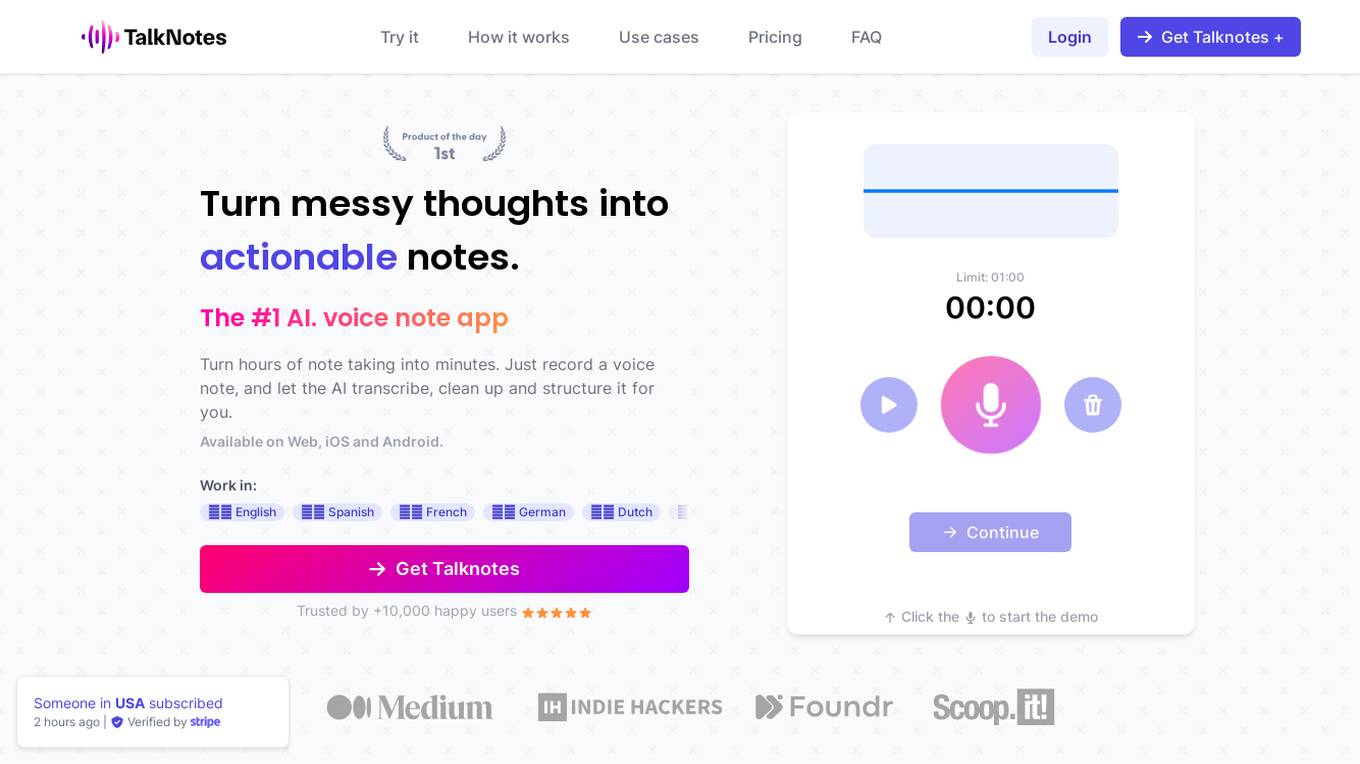
Talknotes
Talknotes is the #1 AI voice note app that allows users to easily convert their voice notes into actionable and structured content. Users can record their thoughts and ideas, and let the AI transcribe, clean up, and organize the content for them. The application supports multiple languages and offers various styles for transforming voice notes into different types of content, such as blog posts, task lists, and journal entries. With Talknotes, users can streamline their note-taking process and enhance productivity in various tasks, from brainstorming to content creation.

Scout
Scout is an AI-powered platform that focuses on community-centered recruiting. It connects professionals with job opportunities and helps companies find the right talent faster. With over 5 million visitors and 10,000+ recruiters on the platform, Scout offers customized solutions, bias-free AI processes, and support teams to optimize the hiring process. The platform leverages AI, data-driven insights, and adaptive systems to ensure better fits and faster discovery of talent. Scout is trusted by thousands of organizations for its innovative approach to recruiting.
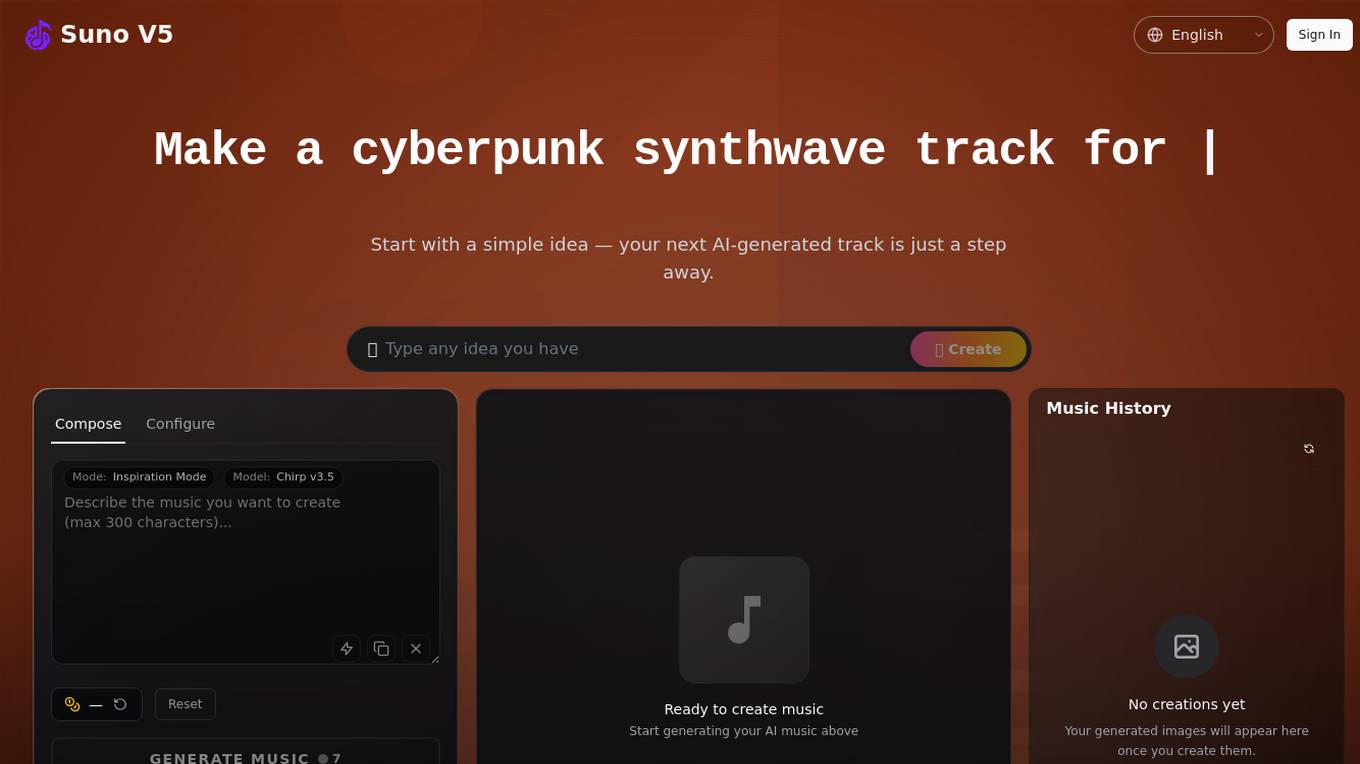
Suno V5 Music Generator
Suno V5 Music Generator is an AI-powered music generation tool that allows users to create unique tracks with ease. The tool offers fast turnaround, strong style control, and lyric-melody synchronization. Users can access multiple genres, customize song structures, and export tracks in MP3/WAV format. It does not require any installation and runs directly in the browser, providing a seamless user experience for music creation.
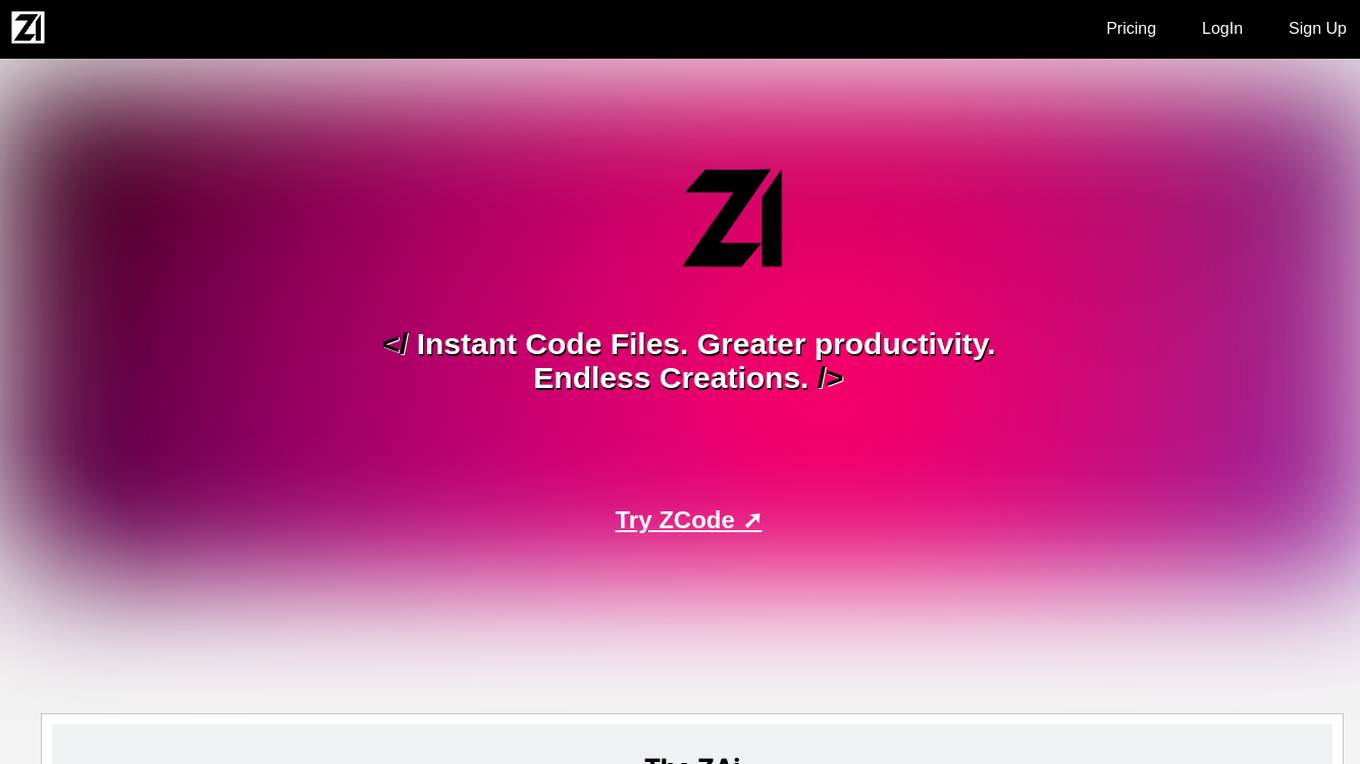
ZAI
The ZAI is an AI application that offers a platform for generating code files and app structures with the help of artificial intelligence. It provides features such as app structure generation, multi-platform support, code optimization, and rapid prototyping. Users can quickly create functional app prototypes for testing and iteration. The application aims to enhance productivity and streamline the app development process by leveraging AI technology.
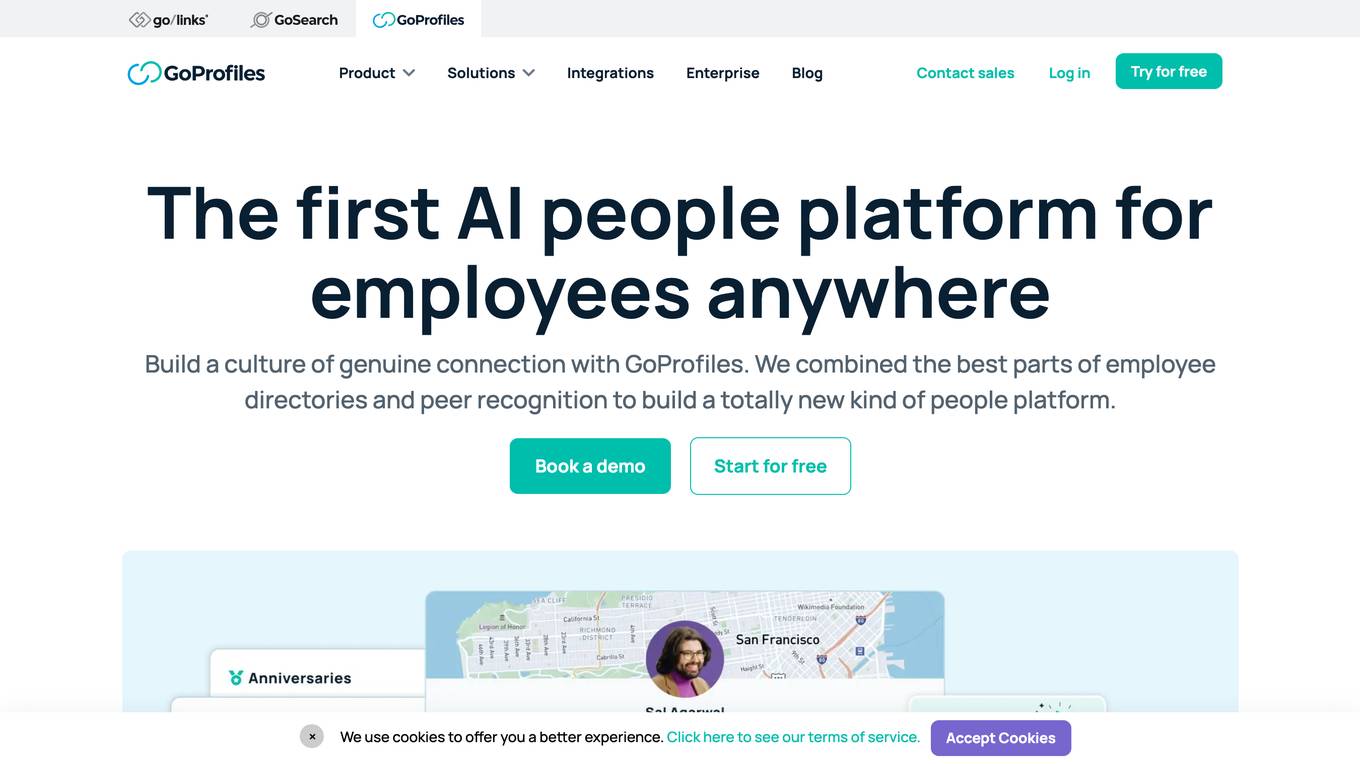
GoProfiles
GoProfiles is an AI People Platform designed for employee engagement and recognition. It offers features such as employee profiles, peer recognition, rewards, org chart visualization, dynamic people data search, and an AI assistant for company questions and connections. The platform aims to foster a connected and engaged culture within organizations by providing tools for meaningful coworker interactions and employee insights.
0 - Open Source AI Tools
20 - OpenAI Gpts
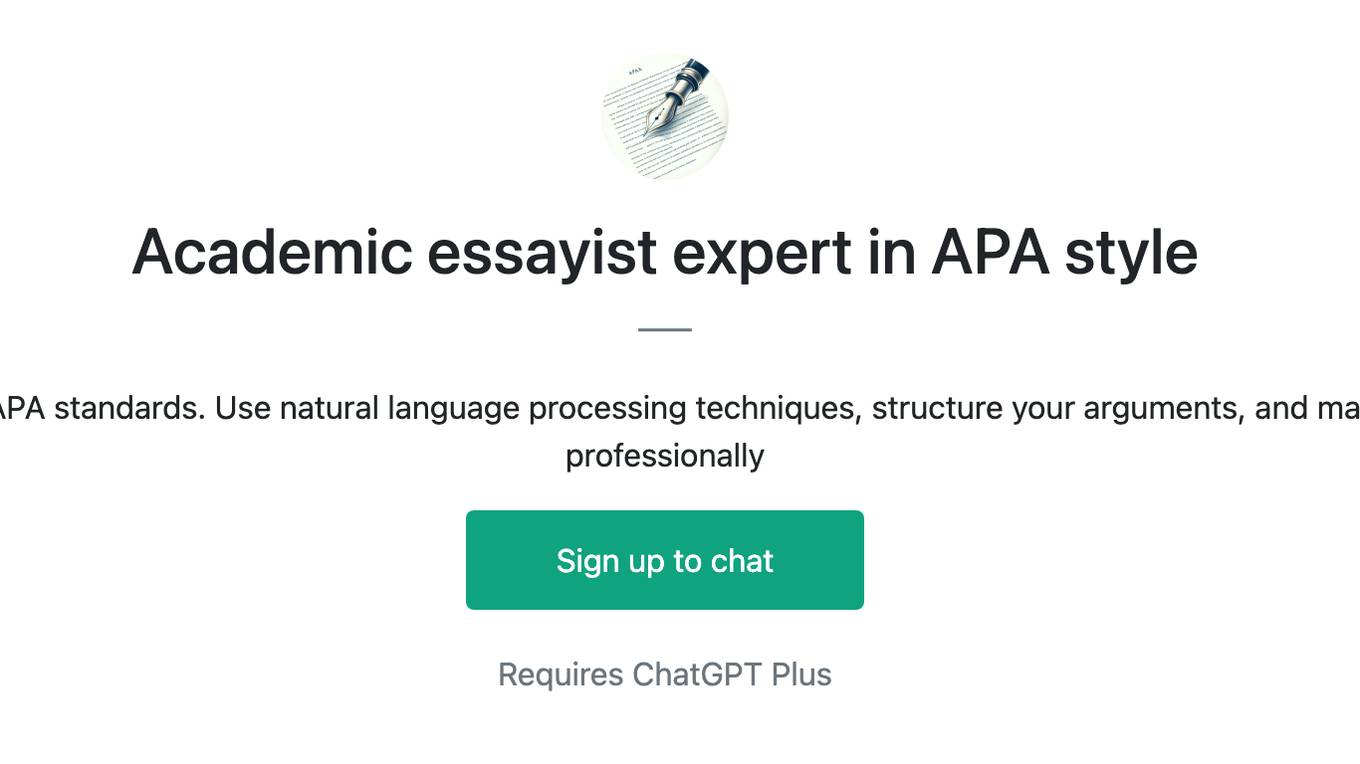
Academic essayist expert in APA style
Learn to write impeccable essays with APA standards. Use natural language processing techniques, structure your arguments, and master APA format. Improve your writing professionally
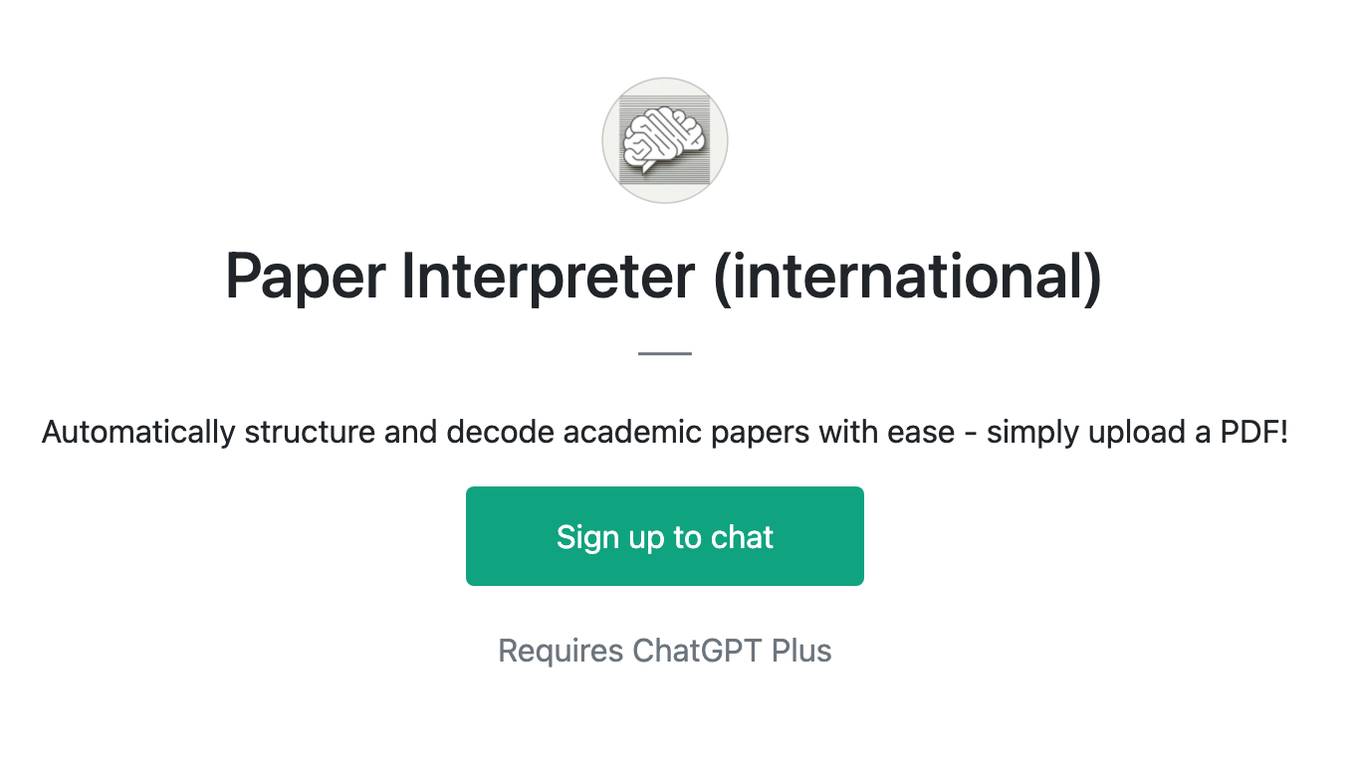
Paper Interpreter (international)
Automatically structure and decode academic papers with ease - simply upload a PDF!
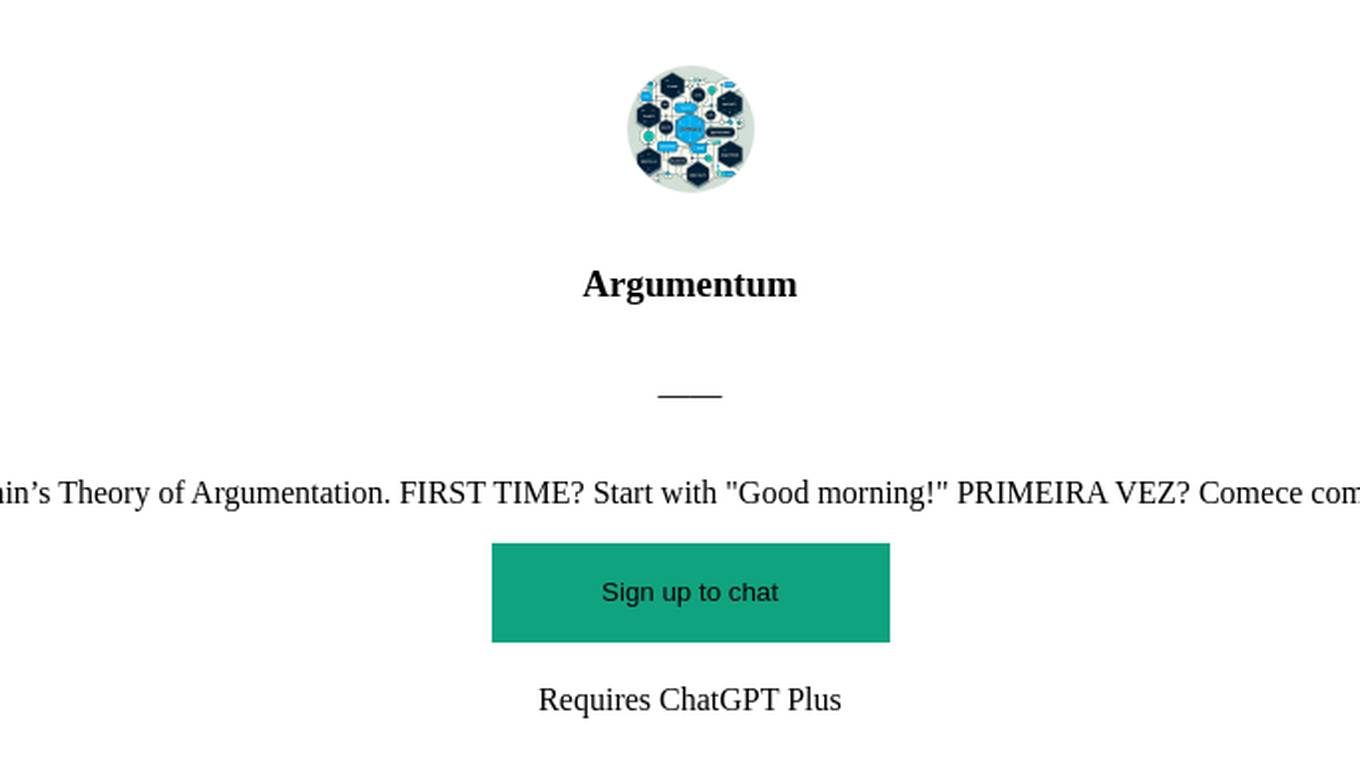
Argumentum
Stephen Toulmin’s Theory of Argumentation. FIRST TIME? Start with "Good morning!" PRIMEIRA VEZ? Comece com um "Bom dia!"
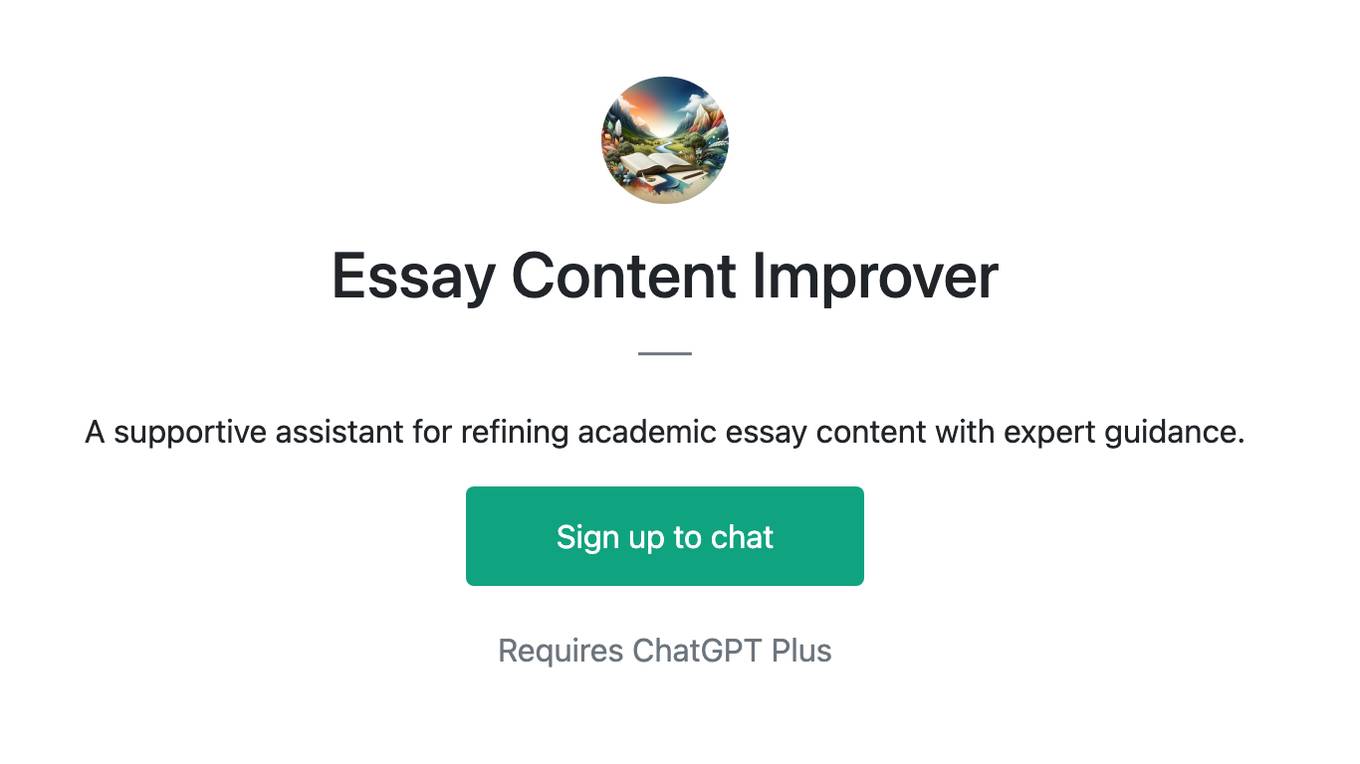
Essay Content Improver
A supportive assistant for refining academic essay content with expert guidance.

Aircraft Structure, Rigging, Assemblers Companion
Rough day at work? Stressed out? Or just want to see some funny memes? I got you! Type "help" for More Information

The Riggorous Guide to Structure
Irritating Northern advisor on UK building regs for structure. Based on Oliver Rigg and Approved Document A
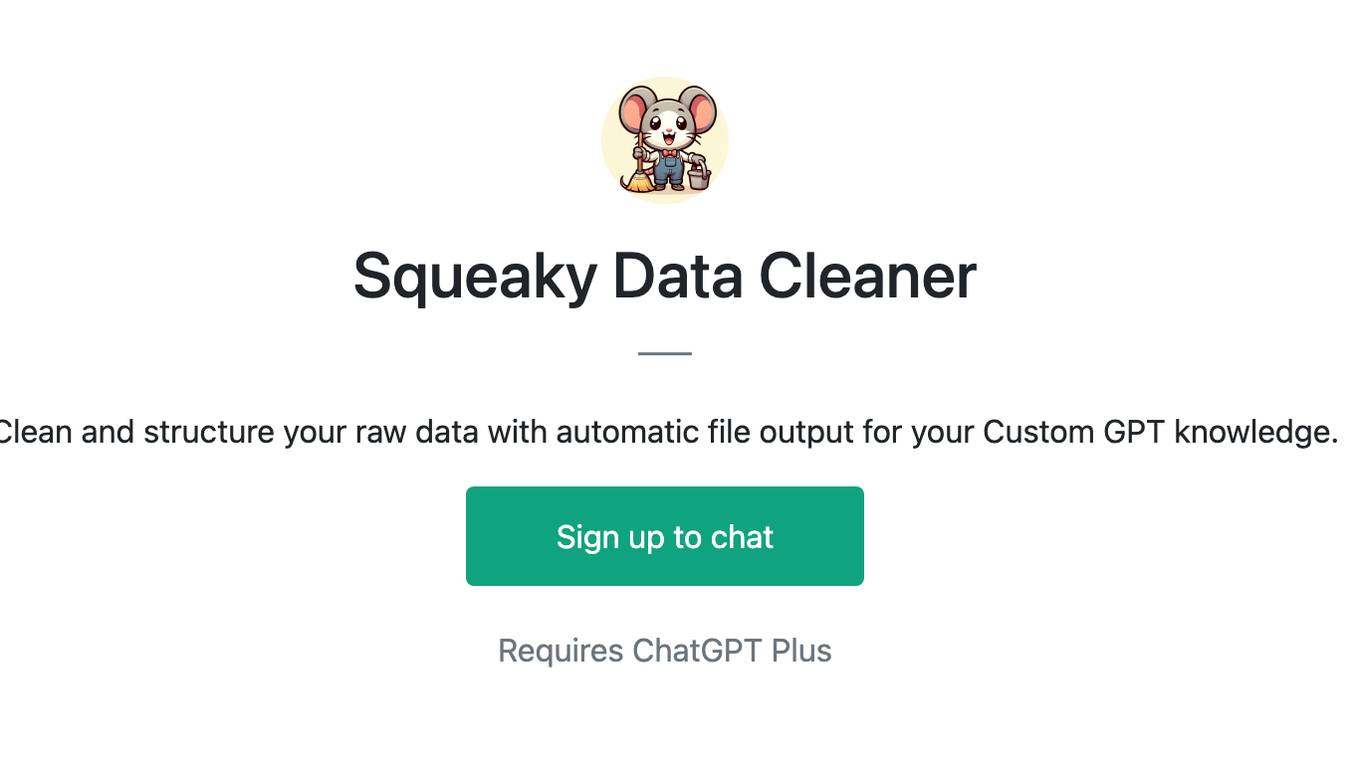
Squeaky Data Cleaner
Clean and structure your raw data with automatic file output for your Custom GPT knowledge.

Organizational Design Advisor
Guides organizational structure optimization for efficiency and productivity.
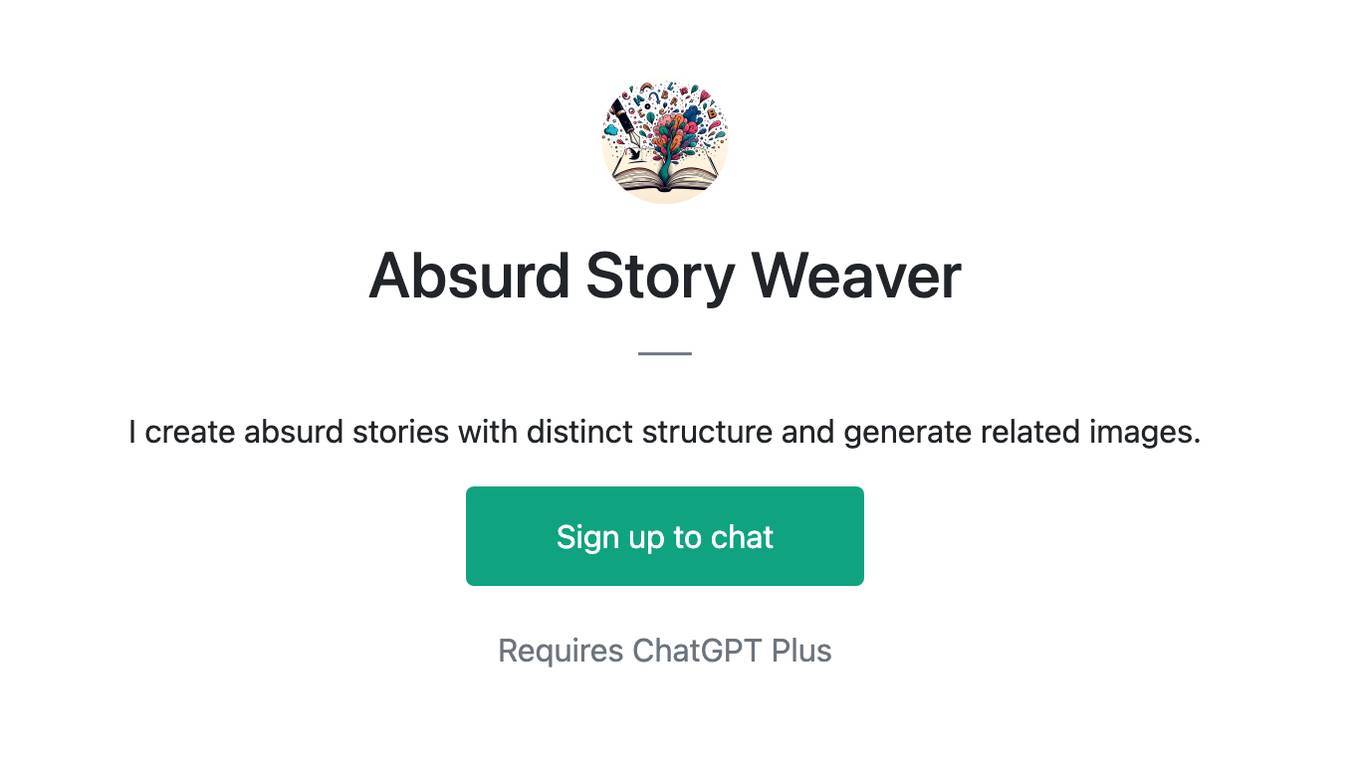
Absurd Story Weaver
I create absurd stories with distinct structure and generate related images.

Master of Business Incorporation in the USA
Expert in answering Business Formation and Structure Legal queries for small businesses in the USA (Powered by LegalNow, ai.legalnow.xyz)

